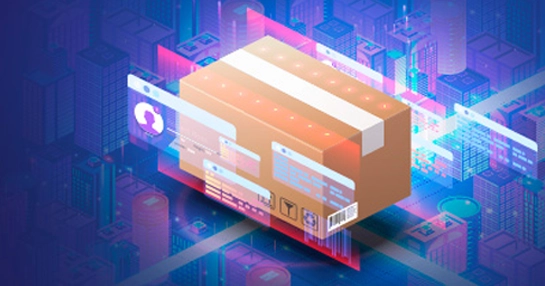Businesses use contracts to undertake their professional dealings. Every business transaction related to the supply of goods or services is based on a contract. All terms and conditions, including the details of delivery and payments, are included in a contract that all the parties have to fulfill. If a business wants to grow, it needs to increase its volumes of deals.
Assuming a business manages thousands of deals in a year. For every deal, there is a formal contract. Maintaining and following all these contracts can be a nightmare in a manually driven environment. Contract lifecycle management (CLM) helps you manage a contract from beginning to end and eradicates the chances of human errors.
What is Contract Lifecycle Management?
Right from the time of the creation of a contract, changes thereof up to the completion of the contract, the process is lengthy, and even the smallest mistake can incur a huge loss. Over the past two decades, technology has gradually provided substitutes for the tedious processes that used to be followed manually by businesses. Contract Lifecycle Management is a software-based solution for managing business contracts from creation to completion.
Here are the activities that a CLM software undertakes to help your business:
- Drafting of the contract
- Negotiating the contract clauses
- Editing and approval of the contract
- Formalization and contract creation
- Managing changes to the contract
- Documentation and changes thereof
- Stage-wise workflow and execution of the contract
- Reporting of the contract performance
- Tracking and analyzing the performance as per the contract
- Renewals of the contract
What is the Need for Contract Lifecycle Management?
Every business relationship is developed through contracts. Contracts are the very foundation of business dealings. Whether you want to carry out business transactions or maintain relationships with suppliers, contracts play a key role. Business contracts can be related to finance, legal matters, procurement or marketing. But maintaining these contracts manually can lead to a lot of problems. And CLM software programs can be highly advantageous to businesses. Consider the following table:
| SN. | Particulars | Manual Record | CLM |
| 1. | Timeliness | Tedious to record and retrieve | Easier to search and obtain important records when needed |
| 2. | Cost | High maintenance costs. Requires record rooms and separate employees to maintain these records | Chronologically maintained in a soft copy. Cost-effective maintenance of the software, along with reduced need for manpower |
| 3. | Accuracy | More prone to errors, and requires a series of thorough checks. Even a simple mistake can cause a huge loss to the business | With inbuilt checks and balances, CLM software programs detect common human errors in real time and help businesses avoid mistakes |
| 4. | Deadlines | With manual work, there is no mechanism of reminders, and therefore missed deadlines and resulting losses | Records all major deadlines related to a contract and pushes reminder notifications whenever needed. No missed deadlines |
Contracts also carry a lot of mandatory regulatory compliance. Missing such a compliance requirement can attract heavy penalties and loss of goodwill. With the CLM system, businesses can avoid countless risks, losses and penalties.
Contract Templates
You can choose from various contract templates, the ones that suits your requirements. These templates contain typically used business clauses that can be modified according to specific needs.
Integrates All Your Business Records
CLM can be easily integrated with the ERP systems used by businesses. This ensures an easy flow of data across software platforms.
Wholesome Contract Management
CLM software can help with the following:
- Creating the draft of a contract
- Streamlining the contract approval process
- Negotiating through the system
- Storing the contracts in one place
- Easy retrieval of contracts
- E-signature
- Easy tracking and monitoring the progress and performance
- Setting automated alerts for contract deadlines
Saves Time and Cost
Unlike manual process, CLM software expedites the execution of contracts because the data is readily accessible across all the terminals. All the responsible people can check the status of the contract and take necessary actions whenever needed. It also reduces the costs associated with penalties and errors in contract clauses.
Increased Productivity
With quick decisions and saved time, the overall productivity and efficiency of the business processes can be increased. As a result, the business can increase its turnover manifold.
Increased Volumes and Revenue
With technological support, employees output can be increased. With expedited processes and reduced friction, the business can achieve higher volumes and revenues.
Reduced Risks and Liabilities
CLM software can point out mistakes that can be rectified as they occur. As a result, the risk of losses and penalties can be minimized.
Importance of Effective Contract Lifecycle Management
Effective contract lifecycle management represents a strategic imperative for modern organizations seeking to maximize value from supplier relationships. Without proper management, contracts become static documents rather than dynamic business tools, leading to missed opportunities and unaddressed risks. Well-implemented CLM processes ensure that contractual terms translate into operational reality, with obligations consistently fulfilled by all parties.
From a financial perspective, effective contract management prevents value erosion through diligent monitoring of pricing terms, rebates, and service levels. Organizations with mature CLM processes achieve more cost savings than those with fragmented approaches. Beyond cost control, strategic contract management enables agility during market disruptions by providing immediate visibility into force majeure clauses and alternative supplier options.
The governance aspects of CLM support corporate social responsibility initiatives by embedding ethical requirements into supplier agreements and tracking compliance. As organizations face increasing regulatory scrutiny, comprehensive contract management provides the documentation necessary to demonstrate compliance with industry-specific regulations. Additionally, effective CLM supports knowledge retention despite personnel changes, preserving institutional understanding of supplier relationships. In competitive markets, organizations leveraging advanced contract management gain significant advantages through faster procurement cycles, reduced legal expenses, and optimized supplier performance that collectively enhance operational efficiency.
What are the Benefits of Contract Lifecycle Management (CLM) Software?
Contract lifecycle management software delivers transformative advantages to procurement and supply chain operations. Risk mitigation stands as a primary benefit, with automated compliance monitoring and proactive alerts for potential contractual breaches. The visibility provided across the entire contract portfolio enables organizations to identify opportunities for consolidation and leverage higher-volume discounts. Cycle time reduction represents another significant advantage, with studies showing that implementation can decrease contract creation times by up to half through template libraries and automated workflows.
Financial benefits materialize through obligation tracking which prevents revenue leakage from missed price increases or renewal opportunities. The centralized repository eliminates scattered contract storage, providing instant access to authorized stakeholders regardless of geographic location. Version control mechanisms maintain complete audit trails that prove invaluable during disputes or audits, clearly documenting the evolution of agreements.
CLM systems also enhance supplier relationship management through consistent performance monitoring against contractual commitments. The analytical capabilities enable organizations to evaluate supplier compliance and identify strategic partners for expanded engagement. As regulatory environments grow increasingly complex, CLM software automatically incorporates compliance requirements into contract templates, ensuring adherence to evolving laws. Finally, these platforms support sustainability initiatives by facilitating the inclusion and monitoring of environmental and social governance requirements within supplier agreements.
Stages of the Contract Lifecycle Management (CLM) Process
The contract lifecycle management process encompasses several distinct stages that ensure optimal value realization. The cycle begins with contract request and authoring, where stakeholders define requirements and legal teams create initial drafts using standardized templates and clause libraries. This flows into negotiation and redlining, where parties exchange revisions until reaching mutually acceptable terms.
Once the terms are finalized, the approval stage engages designated authorities through predefined workflows to review and authorize the agreement. Upon approval, formal execution occurs through secure electronic signatures, transitioning the contract to active status. During the obligation management phase, the system tracks commitments, deliverables, and performance metrics to ensure compliance with contractual terms.
As contracts approach expiration, renewal management processes trigger review protocols for evaluation and potential extension. Throughout the lifecycle, amendment management captures changes to existing agreements while maintaining complete audit trails. The archival stage preserves inactive contracts according to retention policies, ensuring accessibility for future reference. Advanced CLM systems employ analytics across all stages to identify optimization opportunities and mitigate risks proactively.
How to Choose the Best CLM Software
With a lot of benefits on offer, it can be difficult for you to choose the best procurement and contract management system. So, here are the basic needs that a good CLM software should fulfill:
- It should easily integrate with your existing systems.
- It should be flexible enough to be molded according to your needs.
- The user interface must be easy to learn and work with.
- How often do you need the help of a support team?
- You should get proper help from the support team when needed.
- The platform must be secure and should have powerful analytics.
Contract Lifecycle Management software has become a necessity for businesses that want to scale their revenues and seek to grow at a faster pace. GEP SMART is an innovative software system that provides numerous benefits to users, including:
- Collaborative Contract Authoring
- Source-to-Pay Integration
- Enterprise-wide Contract Intelligence
- Intelligent Contract Repository
- Compliance Tracking and Reporting
- Auto Alerts and Event Reminders
Additional Read: Essential Features To Look In Contract Management Software











